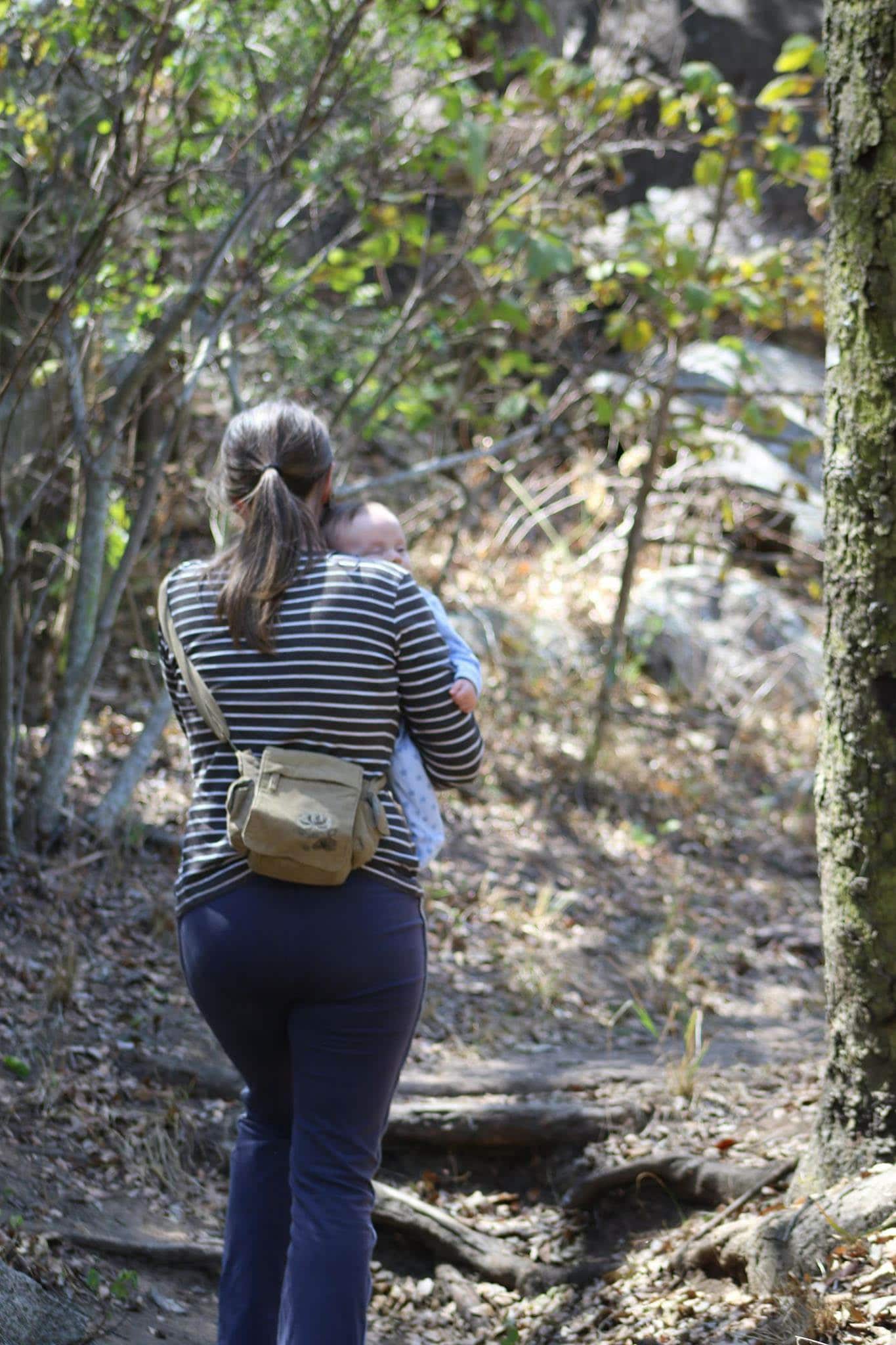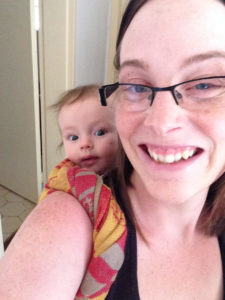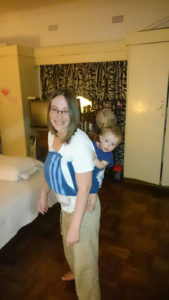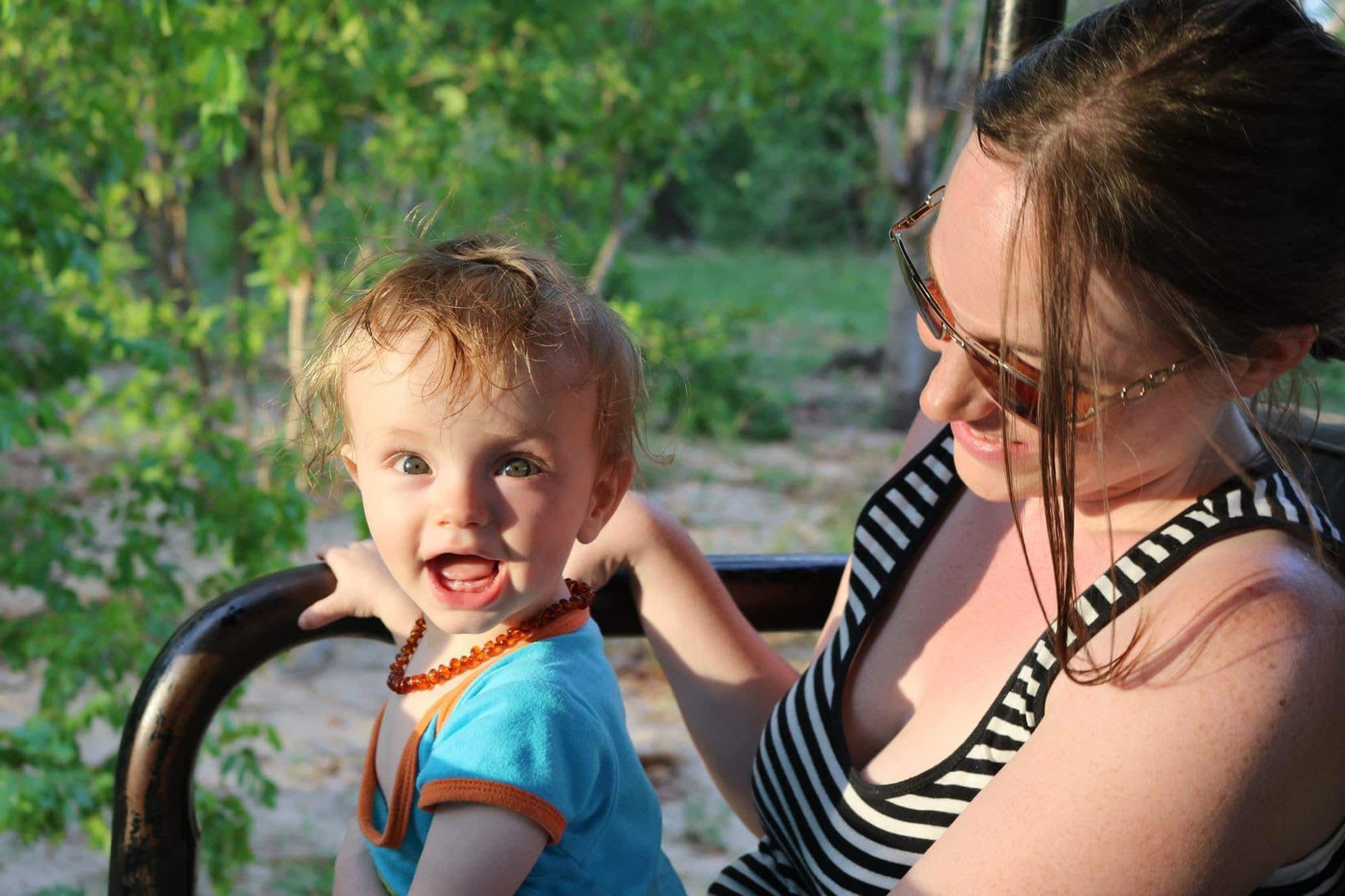
This is a guest post from my lovely friend and doula trainee, Rosie Spampinato. I have encouraged her to write this post to illustrate the power that society has on our breastfeeding journeys. We do not nurse in a vacuum, but are prey to all the influences, good and bad, that society can throw at us. Compare and contrast Rosie’s experience in the UK with the joined up, community support she received in Zimbabwe. Enjoy her story!
In 2003 I gave birth to my first son. I was very young and a single mum but I had a positive birth experience thanks to the support of my family. I had throughout my pregnancy thought I would give breastfeeding a try – why not I had nothing to lose. I remember a health visitor coming to the house with only bottle-feeding leaflets and having to go back to the car to get the breast feeding ones. I was young; she assumed that I would bottle feed. We had never met and she did not ask me until I asked her for the information. I fed him for about a week or two and moved on to formula when I could not get past the sore nipples, the engorgement, the tiredness and the pressure to be young and get on with my life. Moving to formula was ok for me at this time and I did the best I could with the knowledge I had.
In 2008 I gave birth to another beautiful boy. This time things were different I was older, I had experienced motherhood and I was married to my wonderful husband. The birth was easy, I was discharged the same day and all through this pregnancy I had said I would like to give breastfeeding another go. When we got home I struggled to get my baby to latch it was at times impossible especially from one breast.
I asked the midwife when she came to the house to help me. By this point my nipples were bleeding and cracked. She watched me feed him from the other side of the room and said it all looked fine. She told me to try a different position maybe hold him like a rugby ball, maybe some nipple shields will help. So, I tried all these still my nipples were bleeding, still my baby could not get a big mouthful of the breast, still my baby cried and cried and so did I. My husband said to me he couldn’t handle this and so he went and got formula. My baby drank it and settled and I got some rest. That was the end of our breastfeeding relationship and the start of a battle with post-natal depression. I found out many years later my son has a tongue tie and a very special person helped me to understand I did not fail, the system failed me.
In 2012 we moved as a family to Zimbabwe. Breastfeeding is the norm there. It is everywhere; mothers sit under the shade of a tree chatting and feeding. Mothers sit on the back of a pickup truck feeding their babies on the long journey home.
In 2014 I found out I was finally pregnant, this had been a long journey for us. I found myself scared not of the birth as many women expect but of the thought of not being able to breastfeed again. In Zimbabwe formula is not easily available and when you do find it, it is expensive and I knew if we had to use it that it would put a huge strain on us financially. I knew this baby was my last baby so I knew if I could not do it this time I never would. I spoke to my gynaecologist about my concerns, she listened, she let me cry, and she gave me a little leaflet on La Leche League Zimbabwe and told me that I would breastfeed this baby. I sat with this leaflet for a few months before I finally emailed the wonderful La Leche League Leader who invited me to a meeting. The meeting topic was the art of breastfeeding and overcoming difficulties, this meeting was a massive turning point for me. I cried a lot in that meeting for my breastfeeding journeys that could have been so different. I learnt a lot in that meeting too. I attended every La Leche League meeting until my son was born and then re-joined them when he was about 2 months old.
When my son was born in a kneeling position my gynaecologist told me to pick up my baby and helped me to lay back onto the bed and get us comfortable. He did not cry when he was born and I put him straight onto my chest where he found my breast and latched. I thought great this is going to be easy. That day I met my son’s paediatrician. He would be a massive influence on my breastfeeding journey. I spent one night in hospital and my baby wanted to be fed all the time. The midwives came to check on me and they would say “feeding again, this is very good mamma”. This gave me the confidence that this was normal.
 In Zimbabwe we have those little baby cribs in the hospital but I used mine to store my nappies, food and clothes in. That night he was snuggled into my breast and we dozed through feeding and hospital sounds. Husbands are allowed to visit between 7am-6pm other visitors have strict visiting times of an hour in the afternoon. The midwife told me it is to stop the babies being exposed to infection and because the mothers need to feel comfortable on the ward to start breastfeeding. When I was discharged from hospital I was asked by the midwife to hand express a drop of colostrum so that she could see I had something to feed my baby with. My paediatrician also checked my baby again and asked me how much he feeds and if his poo had started to change. I was sent home with an appointment to see him in 10 days and my next gynaecology appointment was at 6 weeks unless I was worried.
In Zimbabwe we have those little baby cribs in the hospital but I used mine to store my nappies, food and clothes in. That night he was snuggled into my breast and we dozed through feeding and hospital sounds. Husbands are allowed to visit between 7am-6pm other visitors have strict visiting times of an hour in the afternoon. The midwife told me it is to stop the babies being exposed to infection and because the mothers need to feel comfortable on the ward to start breastfeeding. When I was discharged from hospital I was asked by the midwife to hand express a drop of colostrum so that she could see I had something to feed my baby with. My paediatrician also checked my baby again and asked me how much he feeds and if his poo had started to change. I was sent home with an appointment to see him in 10 days and my next gynaecology appointment was at 6 weeks unless I was worried.
In Zimbabwe we had two gardeners and a maid. They worked and lived in a cottage at my house. I cared for them and their family as much as I did my own and I know in return they cared for us. When I first moved to Zimbabwe we chatted for hours as I had no friends, I knew nobody, I didn’t even know where the shop was. In the early days my gardener would come with me to the shop and make sure I didn’t get lost. They had wives and children who also lived in the cottage at my house. I would often in the day go and chat with their wives and play with their children. My children would play with their children and the gardeners would often play football or cricket with all the children. My maid had worked for my husband’s family for about 30 years when she came to work for me. She was at times like a mother to me. I could share my worries with her and know she would keep them and she would in return share her worries with me. She had children of her own and was a grandmother. Little did I know before the birth of my third child that they would be my village that they would be there for me 24 hours a day.
I will never forget arriving home with my baby. My gardeners ran out to greet me at the car calling for my maid to come too. They congratulated me and my husband. My maid hugged me tight and I showed her my baby. I was then hurried into the house and straight to my bed with my baby. This is where I stayed for a week. I would only get up for visitors, to use the bathroom or to bathe. Breastfeeding got off to a good start but I was sore and when my milk came in something was not right my baby would pull on and off the breast for what I could see was no reason. I texted my La Leche League Leader who came to see me at my house. Feeding was going well but my nipples would turn white and my baby sounded like he was drowning. I had an oversupply, forceful let-down and my nipple blanching I would later discover was due to Raynaud’s Phenomenon. My La Leche League leader gave me information on both of these and I learnt to catch my forceful let down in a towel or bottle when he came off and to return him once it had stopped spraying. My maid would always say she had never seen so much milk.
 When I went shopping with my baby, people loved to come and look at him in his wrap and they would say ‘he is so strong keep giving him your milk mamma’. When he held his head up strongly for the first time, when he crawled, when he walked, my maid would tell me this is all because of your milk. When I worried he was not getting enough milk and he was on the bottom line of the growth chart, my paediatrician told me to just keep feeding him and that he was growing. He said he does not look like a sick baby and you are a small woman so why would you have a big baby? He also offered to call my La Leche League leader whose number he had and would use for any breastfeeding worries.
When I went shopping with my baby, people loved to come and look at him in his wrap and they would say ‘he is so strong keep giving him your milk mamma’. When he held his head up strongly for the first time, when he crawled, when he walked, my maid would tell me this is all because of your milk. When I worried he was not getting enough milk and he was on the bottom line of the growth chart, my paediatrician told me to just keep feeding him and that he was growing. He said he does not look like a sick baby and you are a small woman so why would you have a big baby? He also offered to call my La Leche League leader whose number he had and would use for any breastfeeding worries.
I suffered repeat episodes of mastitis due to my oversupply. I would visit my GP who would get me antibiotics that I could take while breastfeeding. I was never told to stop feeding; she encouraged me to feed until my baby was 2,3 or 4 years old. I was once very poorly with mastitis in both breasts but somehow I managed to get to my GP and my maid came with me. The doctor told my maid in the local language that I was to spend the day in bed and to bring the baby to me to feed only. My maid wore my baby on her back the whole day bringing him to me to empty my breasts of milk. He never cried and she would never allow it.
This joined up care for me and the fact that breastfeeding is the norm there helped me to be successful in breastfeeding my son. Without all the small things from my maid, my doctors, and my La Leche League leader I would not have made it.
In Zimbabwe I never felt ashamed to feed my baby anywhere anytime. My eldest son had started a single sex high school. I fed my baby often sitting in the boot of my car with the boys coming out of school saying afternoon madam without blinking an eye. My baby came everywhere with me and I fed him everywhere I went.
When the time came for us to leave Zimbabwe I was scared again for my breastfeeding journey. He was 20 months when we left. I was ashamed to feed him in public in the UK. Once again, I felt like I was doing something wrong and should hide away at home. I had mastitis shortly after we arrived and my doctor said to me this is a sign for you to stop…. I didn’t stop and I am very thankful that I had found La Leche League in the UK. I gently weaned my son from the breast at 33 months he did not cry and we were both ready to come to its natural bittersweet end.
My experience in Zimbabwe has taught me that if society was more accepting, of motherhood as well as breastfeeding, then maybe this journey would be easier and mothers could get the support they need, at the time they need it.

Rosie, you are a special person and a special mother, we miss you here in Zimbabwe. Keep strong in your path to helping mothers and babies one at a time. Thank you for sharing your story with us.
Thank you so much im inspired